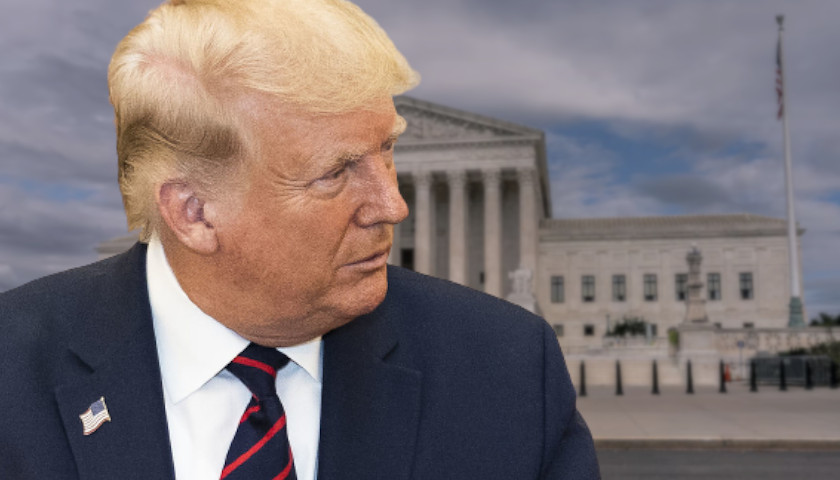Jacob Huebert, president of the Liberty Justice Center, detailed this week’s upcoming oral arguments in the case TikTok, Inc. v. Garland before the U.S. Supreme Court, explaining how the plaintiffs in the case are seeking to prevent the current law requiring TikTok to divest from its parent company by January 19 from taking effect.
In April 2024, President Joe Biden signed a bill into law, the Protecting Americans from Foreign Adversary Controlled Applications Act, which requires that TikTok be divested from its parent company, ByteDance, by January 19 or cease operations in the U.S.
Friday’s oral arguments in the case will combine three legal challenges to the law brought by the Liberty Justice Center filed on behalf of the nonprofit BASED Politics, a group of TikTok creators, and TikTok and its parent company ByteDance.
Huebert, who will be at the council table while oral arguments are underway on Friday, said petitioners argue that the law violates the First Amendment.
“We wanted to challenge this because we see it as a sweeping, unprecedented violation of Americans’ free speech rights,” Huebert explained on Wednesday’s edition of The Michael Patrick Leahy Show.
“[The government] says, in defending this law, that we need to do this because China could manipulate the content that Americans see. There, you’re just expressing a concern about the ideas that we put in front of Americans. In fact, they say they could promote things that go against the U. S. government’s interests. The First Amendment exists to stop the government from suppressing speech that it thinks goes against its interests. That’s true no matter what the speech is. The Supreme Court has said that’s true, even if you’re talking about foreign communist propaganda. The Supreme Court said many years ago, people have a right to receive that without government interference,” Huebert added.
To the government’s argument that TikTok, under its current parent company, is a “national security” risk and requiring the platform to divest would “protect Americans data privacy,” Huebert said neither of these justifications is “sufficient.”
“When the Supreme Court has said that you can abridge speech for national security, it says you need an immediate threat to national security and that doesn’t exist here. With this data privacy thing, the idea that someday maybe China will lean on ByteDance to turn over U.S. TikTok users’ data and do something, we don’t know what, with that data. That’s very speculative, and in the future, and not an imminent threat to anybody. If Americans are concerned about that threat, they can of course not install TikTok on their phones in the first place,” Huebert explained.
In addition, Huebert said if Congress were “serious” about “protecting Americans’ data from China,” then other Chinese platforms would also be targeted, including the popular Chinese shopping app Temu.
“If Congress were serious about protecting Americans’ data from China, this law wouldn’t just narrowly target TikTok and other social media platforms, potentially where people can express political ideas. It would go after all apps with ties to China,” Huebert said.
“This law does nothing about other Chinese apps like shopping apps, like Temu, which have been reported to have the exact same data privacy concerns. This suggests that the real purpose of banning TikTok is not to protect Americans’ data, but to suppress the speech that goes on TikTok,” Huebert added.
Huebert further explained that requiring TikTok to divest from its parent company is simply not feasible.
“The law just requires divestment, but really as a practical matter, it’s a ban because according to TikTok, it’s not possible for it to be divested from ByteDance. It’s an integrated global platform, and it relies on this content recommendation engine that is maintained in China. So if you were to cut off the U. S. portion, it just wouldn’t be the same platform anymore, and it wouldn’t connect you with the same audience anymore,” Huebert said.
Regarding the Supreme Court issuing a ruling in the case, Huebert said the nation’s highest court may issue an expedited full decision before January 19 or simply grant the petitioners’ stay to block the law from taking effect.
“[The Supreme Court’s ruling] might be a straight up or down – this thing is constitutional or unconstitutional – or it could be a preliminary ruling that stays the effective date as we originally requested,” Huebert said.
Watch the full interview:
– – –
Kaitlin Housler is a reporter at The Tennessee Star and The Star News Network. Follow Kaitlin on X / Twitter.





